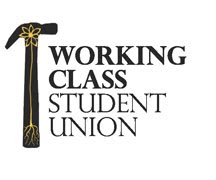As a Spanish major, it’s almost expected of me to study abroad sometime during my college career. At first, I was wary of the idea, I have never been outside the country and I wasn’t sure I’d be able to spend that much time away from my friends and family in America. But after my cousin studied abroad in France and eventually joined the Peace Corps and got stationed in Cameroon, I began to think that maybe if she could do it I could too.
The next step should have been research, but all I could keep thinking about were my financial barriers. My advisor told me that this, my freshman year, was the year to dream big, get ideas about where I wanted to go and when, what kinds of classes I wanted to take, and how they would fit in with my plans to graduate. But before I could even begin to think about it, I was stopped short with thinking about how I would pay for it.
When I asked my advisor about it, she said that for many people, studying abroad isn’t that much more expensive. I found it hard to believe, but compared to out-of-state tuition at the UW, study abroad programs can be relatively affordable. Also, financial aid isn’t treated any differently for study abroad, and scholarships seem to be relatively available. The UW’s International Academic Programs website has a useful guide to researching the cost of programs, financial aid information, and creative fundraising strategies. (http://www.studyabroad.wisc.edu/financial/index.html)
My strategy includes a lot of planning on my part, along with hard work and saving. As a first-generation student, studying abroad is just another college experience that I feel entitled to, and I want to take advantage of the opportunity and hopefully make it work.




No comments:
Post a Comment